#Whey protein side effects
Text
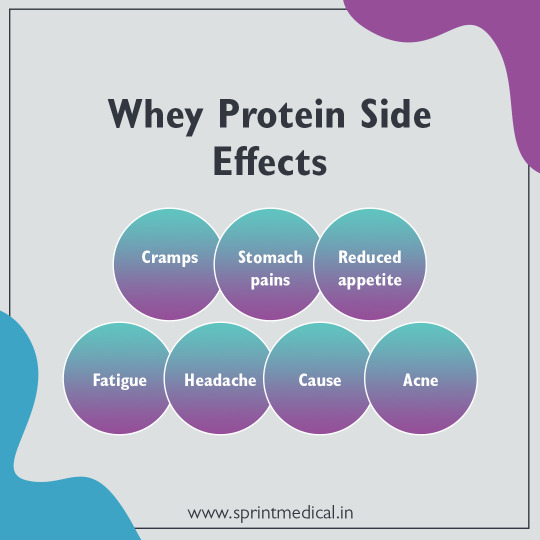
Whey Protein Side Effects
Too much of anything does no good and the same goes for whey proteins too. The side effects of consuming high amounts of whey protein are specifically high in people who are allergic to milk. Some of the prominent side effects are,
0 notes
Text
Whey Protein - 100% Natural Muscle Gain Powder
What Is Whey Protein?
What are the things that distress you about yourself? Do you think about that every time you see yourself? If so, now is a good time to change the way you think, and you can start by getting your body into shape. Read on to find some simple ways to build the muscles you want, fast.
Before you start protein powder trying to build muscle, determine which exercises are most likely to yield the desired results. There are various kinds of exercises that focus on different things, like muscle building, toning and particular muscle groups. It is important that you are using a variety of muscle building exercises on each of your muscle groups.
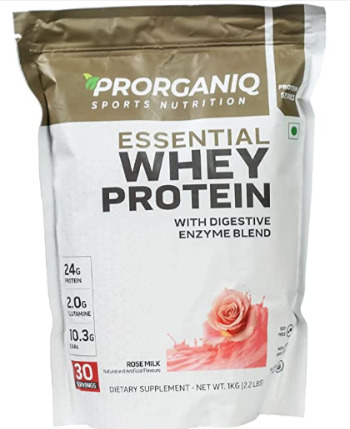
While building muscle generally corresponds to an increase in weight, you should not be surprised if your overall weight does not increase. Your lack of net weight gain can easily be attributed to weight loss caused by a decrease in body fat offsetting your muscle gain. There are various tools and techniques that track body-fat loss. You can utilize them to account for this.
How Does Whey Help Burn Body Fat?
In order to successfully whey protein gain muscle, it is important to have a strategy, and a plan to execute that strategy. There are various resources that you can utilize to determine which strength-training exercises your plan will incorporate. You should also set a schedule that is easy to follow, and will not overwhelm you. Go over your plan with a professional trainer to make certain that it can fulfill your goals.
Eat plenty of carbs. If your body runs short on glucose after hard workouts, your body will use muscle tissue for protein and carbohydrates, undoing your hard work. Stay away from low-carb diets, and eat an appropriate amount of carbs given the intensity of your workouts--possibly a couple of grams of carbs per pound of body weight each day.
Can Protein Make You Gain Weight?
Tracking your whey protein powder progress is important when trying to build muscle. It can be hard to determine your progression if you do not take the time to track your muscle-building journey. This can easily be done using a measuring tape and a notebook. Write down your starting measurements and track any developments every two weeks or once a month.
In order to build lean muscle you need to work out three to four times per week. You best whey protein should do workouts that use all the muscles in your body, as this will help you to lose weight quickly and strengthen your muscles at the same time. Working out every day can cause your body to become injured and would be counterproductive.
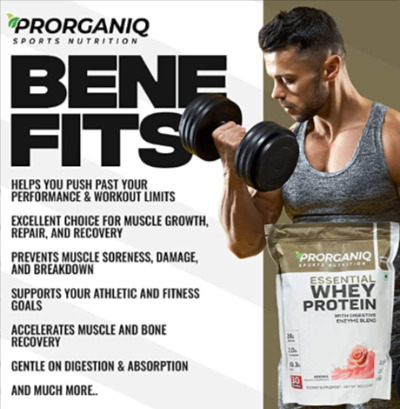
When doing weight training, you should always ensure your rest periods are monitored very closely. Short rest periods are the best because they cause a large amount of lactate to accumulate in your muscles. This lactate causes your muscles to be more fatigued, which can lead to more muscle growth.
Which Protein Is Best To Increase Weight?
Before starting your muscle building, you need to sit down and come up with a realistic plan for yourself. This is important because it helps you to follow a set guideline and helps you to reach your goals much faster. If you don't do this, you are likely to give up.
Utilize pyramid training. A single weight lifting regimen doesn't yield results forever. This is why you should attempt to pyramid your weight by using best whey protein powder heavier weights throughout every set. Heavy sets allow you to build up your strength, and the medium weights maximize your muscle growth. This allows you to gain both strength and size in just one workout.
Building muscle doesn't necessarily mean you have to get ripped. There are a variety of bodybuilding routines designed to get different results. You need to determine what your goals are before settling on one. If you desire extremely large muscles than you will eventually probably need some supplements in addition to your diet and workouts.
Does Protein Affect Weight?
Learn to eat the Whey Protein Amazon right foods to build muscle. Knowing which foods to eat and not to eat when trying to pack on muscle can save you a lot of time in your efforts. If you get the proper nutrition, you should have no problems gaining a substantial amount of muscle.

Try the farmer's walk in order to make your cardio exercise a more productive part of your muscle-building workouts. Hold a dumbbell in each hand at your sides and keep your abdominal muscles sucked in tight while you walk. Start off with a ten-minute walk, and aim to increase this to 20 minutes as you practice.
Click Here to Get Whey Protein Available Online :
https://www.amazon.in/Prorganiq-Essential-Improved-Strength-Servings/dp/B0BNYK1R8R
https://prorganiq.com/products/whey-protein
Conclusion
Try to eat every 3-4 hours. If you don't eat frequently enough, you can slow down the rate at which your body creates new proteins, which create muscle tissue. Divide the total number of calories you need in a day by 6, and try to shoot for 6 mini-meals spread out over the course of the day.
You will soon be asking yourself what you like about yourself. You will be pleasantly surprised by the changes in your health, appearance, and self-esteem. So change your life today!
#Whey protein benefits#Whey protein side effects#Whey Protein price#Whey protein for women#Whey Protein 1 kg
1 note
·
View note
Text
Protein Powder Benefits

Know here, Protein Powder Benefits. Protein Powder Benefits for Weight Loss. Whey Protein Benefits. Benefits of Protein Shakes for Females. Know, how Energya Fortifood is the Best Protein Powder in India.
#Protein Powder Side Effects#Protein Powder Benefits for Weight Loss#Benefits of Protein Shakes for Females#Whey Protein Benefits#Benefits of Protein Powder for Weight Gain#Best Protein Powder
0 notes
Text
#whey protein#whey#whey protein powder#whey protein isolate#best whey protein#whey protein price#whey powder#whey protein concentrate#what is whey protein#what is whey#what is whey protein isolate#what is whey protein made of#what is the best whey protein#what are the benefits of whey protein#best time to take whey protein#How much whey protein should you take#side effects to taking whey protein#side effects of whey protein
0 notes
Text
Which Protein Powder is the Best?
Protein - Proteins are complicated molecules that perform the majority of the work in cells. They are crucial to the body's structure, function, and control.
Top Seven Protein Powders
1. Whey Protein Powder - Pure whey protein powder is considered to be the best natural vegan protein for muscle building. Pro-X Performance Protein is a great product if you're looking for something high-quality.
There are some potential adverse effects of whey protein supplementation. Increased bowel motions, bloating, and flatulence is examples of these symptoms. People who are lactose intolerant may also feel gastrointestinal upset after eating whey protein.
2. Muscle Milk - If you don't want to use a pre-workout supplement, then Muscle Milk may be right for you. It's designed to help build lean muscle mass while you work out. It contains creatine monohydrate, which helps increase muscle size and strength.
3. Vega Sport Nutrition - Like Muscle Milk, Vega Sport Nutrition is known for its focus on sports nutrition and performance. Its products are designed to promote optimal results.
4. Nature Valley Granola Bar - If you want some snacks on the go, then Nature Valley Granola Bars are perfect. They have a mix of granola bars and nuts.
5. Peanut Butter Blast Chocolate Chip Cookie Energy Mix - Peanut Butter and chocolate chips make up these energy cookies. A lot of people love them and they are nutritious and delicious.
6. BSN Lean Shake - BSN is a brand owned by Bodybuilding Science Inc., which is a company based out of California. Their Lean Shake is made with fast-digesting whey protein isolate, which is perfect for post-workout recovery.
7. EAS Protein Snacks - You know what else tastes amazing? EAS Protein Snacks! These are no-frills snacks that contain 20 grams of protein per serving. There's nothing fancy about them, but that's not necessarily a bad thing.
0 notes
Text
Role of GXN Pure Whey Protein for Desirable Growth
GXN Pure Whey Protein contains the important amino acids which provides the desirable growth. Protein is digestible quickly then other whey proteins and speed up muscle recovery. GXN Pure Whey Protein contains the Protein with ECAA and BCAA to ensure your workouts are stronger and effective.
0 notes
Text


Ok guys, I'm making changes.
Something needs fixing, and I'm going to try fix it by stepping away from my fasting routine, and seriously focusing on protein.
I've always known how important it is, particularly as a previous heavy lifter and as a fitness professional.
But I lost that focus along the way.
I'm forever my own health, nutrition and fitness experiment.
I have made many changes along my own personal journey.
From a late 30's, 190 lb, binge eating, heavy drinking, weed smoking (full disclosure from me every time!!), stressed, sedentary, very unfit type one diabetic who also seriously neglected her condition.
To an early 50's, post menopausal, 135 lb, teetotal, physically active, lean (mostly) physiqued, non smoking, strong and relatively fit fitness instructor that battles for her blood sugar regulation on a level that can only be described as obsessive.
I tried fasting as an experiment a couple of years ago. Fit it onto my life. Got nothing from it apart from an initial burst of energy that lasted a few weeks.
I also went pretty much keto. Low carb is fine for me. It would seem that high fat, like fasting, doesn't seem to do me much good.
Those two things are fantastic dietary approaches for almost everyone. Massively beneficial. I advocate both things for pretty much all of my online clients. But for the odd person, like me, certain things have more significant side effects than the benefits they give.
Some days I'll fast, some days I won't. No set number of hours. But that will be dependent on how the day is structured. Nothing planned.
Protein powder/collagen peptide decaff during my morning walk. That's just one new tweak to the very first part of my day.
Same breakfast as usual, not long after getting home. But yep, another blast of collagen and whey protein in that coffee.
Yep, another of my essays!
#fitspo#fitspiration#healthy living#fitblr#health and fitness#suzieb-fit#health and nutrition#diet and nutrition#typeonediabetes#type 1 diabetic#type 1 diabetes#protein#high protein
4 notes
·
View notes
Text
Transform Your Body: The Ultimate Guide to Supplements and Herbal Remedies for FTM Workouts and Increased Testosterone Levels
Are you searching for the definitive guide to supplements and herbal remedies for female-to-male transgender (FTM) exercises and improved testosterone levels? Look no further! This in-depth guide will provide you with all of the knowledge you need to make educated judgments regarding the most effective supplements and medicinal herbs for bringing about a transformation in your body.

We'll cover everything from how they can improve muscle mass, strength, endurance, libido, energy levels, mental clarity, and more. With this information, you can be certain that any dietary supplement or herbal treatment that you select is appropriate for your specific requirements. So get ready to unlock your potential as we explore all of the fantastic benefits that these natural tools have to offer!
Overview of Supplements and Herbal Remedies for FTM Workouts
Supplements and herbal treatments are potent tools that can assist in providing you with the most from your workouts and achieving your fitness goals. They can provide essential nutrients, vitamins, minerals, and other compounds that your body needs to grow muscular, strong, and healthy. Some supplements may even be able to increase testosterone levels in FTM individuals experiencing issues with low testosterone, which can have a positive effect on strength, endurance, and libido, as well as work to lower gender dysphoria.
When it comes to supplements, you should always look for those that are specifically made for trans-masculine individuals. These products will contain the ideal balance of ingredients needed to get the most out of your workouts while avoiding any potential side effects. Some of the most popular choices include whey protein, creatine, and BCAA supplements.
In addition to supplements, several herbal remedies may be able to help you get the most out of workouts designed for trans-masculine bodies. These natural alternatives can provide significant benefits in terms of increased testosterone levels, higher levels of sexual functioning, improved energy levels, mental clarity, and more. Some popular herbal supplements for female-to-male transgender individuals include tribulus terrestris, DHEA, ashwagandha, and fenugreek.
Benefits of Supplements and Herbs for FTM Workouts and Increased Testosterone Levels
Working out is a great way to stay fit and healthy when thinking about transgender health, but if you're looking to take your physique to the next level during your transition process, taking supplements and herbs can help. The fantastic this is that most of these aren't inherently testosterone supplements, but they do wonders to boost testosterone levels anyway!
For example, supplements like tribulus terrestris can boost follicle-stimulating hormones, which in turn can increase testosterone production and promote muscle growth.
Furthermore, zinc deficiency has been linked to testosterone deficiency; therefore, supplementation with zinc is an excellent way to increase testosterone production in FTM individuals.
Meanwhile, Tongkat Ali root—touted as one of the most powerful testosterone therapy boosters around—combines the important hormones DHEA and androsterone for enhanced testosterone levels.
Herbs like ashwagandha are also great for regulating cortisol levels, which could be reducing your levels of sexual desire, as well as cause other adverse effects like weight gain.
So if you're looking for long-lasting gains from engaging with FTM-oriented workouts, herbal remedies, and dietary supplements are worth considering!
Types of Supplements to Consider
Supplementation is an important part of any workout routine, particularly for those transitioning from female to male. The right supplements help facilitate the impact and success of the exercise program while supporting an increase in testosterone levels, and there are myriad supplements that can be employed to your benefit.
Hormone therapy
Hormone therapy is a type of supplement taken to raise testosterone levels. It usually consists of synthetic or bio-identical hormones and can be taken orally or injected. It’s important to speak with your doctor before starting any hormone therapy program as long-term use can cause an increased risk of certain health problems such as prostate cancer or heart attack.
One type of hormone therapy is testosterone replacement therapy (TRT). Testosterone replacement therapy for regulating hormone levels in transgender patients is an important step in transitioning. The process begins with an evaluation from a qualified healthcare professional, who can assess the patient’s eligibility and physical readiness before prescribing hormone treatments.
Generally speaking, testosterone therapy involves the gradual, long-term introduction of testosterone into the system to initiate visible physical changes in the body. This could involve pills, topical gels, intramuscular injections, or other modes of delivery, depending on what is most suitable for the patient and prescribed by their doctor.
Changes caused by introducing testosterone into the body can include the growth of muscle mass, decreased fat distribution around hips and thighs, changes in sex drive, facial and body hair growth, and a deepening of the voice. However, these outcomes will differ between individuals and many different variables influence the success of hormone replacement therapy.
Some gender-affirming hormone therapy treatments are available over the counter, and in some instances, a doctor’s prescription is not required. It is important to discuss any possible risks with your healthcare provider before starting any kind of hormone replacement therapy.
Creatine
A naturally occurring amino acid called creatine is used to replenish muscle glycogen stores after rigorous exercise. It is an essential supplement for any trans person who is serious about their workout regimen.
Creatine helps to boost the body's ability to perform at a higher intensity and for a longer period, leading to increased gains in strength, speed, and power. Supplementing with creatine increases the body’s production of ATP, which is responsible for the muscles' contractile function and energy transfer.
Creatine also helps muscle cells absorb more water, resulting in bigger muscles and faster recovery times after intensive workouts. This supplement has risen to popularity rather quickly due to its many advantages, becoming one of the most prominent supplements among those trying to boost muscle mass, strength, and stamina. Therefore, creatine is an essential part of any health regimen for transgender men seeking noticeable physical changes from their workouts.
Other Supplements and Herbal Remedies
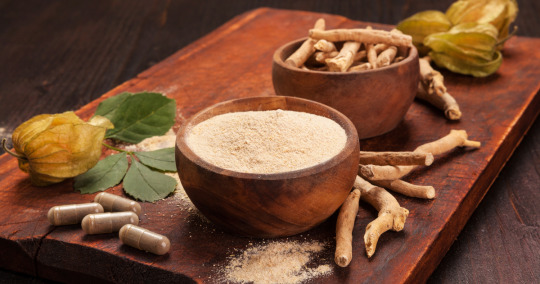
To maximize the benefit of an FTM workout, consider adding the following supplements to your regimen: ZMA, whey protein, Omega-3 fatty acids, ashwagandha, and maca root powder.
ZMA
ZMA supplements help with muscle growth and affect testosterone levels. Additionally, research suggests that it is possible to experience improvements in sexual function by taking a daily ZMA supplement. ZMA is testosterone-boosting, libido-enhancing, and mood-elevating, making it an ideal supplement for those interested in these benefits.
The clinically studied ingredients in ZMA have been found to increase free testosterone levels and reduce feelings of stress, which can help address the physical and psychological barriers that often impede reaching improved sexual function.
These natural ingredients also balance out hormones involved with reproduction and libido such as estrogen and progesterone, which are primarily useful for MTF individuals instead of FTM. Increased energy levels are also associated with ZMA supplementation, providing improved stamina.
Whey protein
Nutritionally, whey protein is highly recommended for transgender men in transition. This advantage is because whey protein contains all nine essential amino acids, including leucine, which helps increase muscle mass.
This can be beneficial during a masculine transition as increased muscle mass results in increased testosterone production, leading to optimal health and improved progress in transition-related goals such as appearing more masculine by decreasing physical components of gender dysphoria.
Additionally, many forms of whey protein offer a good source of calcium and vitamin B12—two essential vitamins necessary for healthy bone mass and nervous system function that may be lacking when on hormone therapy. With adequate doses of whey protein plus proper safety measures, the FTM transition can become even more fruitful.
Omega-3 fatty acids
Omega-3 fatty acids improve natural hormone balance helping restore normal testosterone levels. They are essential for overall health and well-being, but they can be especially beneficial to those transitioning toward masculinity. Omega-3 fatty acids have been linked to improved growth in muscles, healthy testosterone levels, improved brain function and clarity, better circulation, a healthy heart rate, and circulatory system, improved sleep quality, and an enhanced immune system.
Moreover, omega-3 fatty acids have been demonstrated to lower inflammation in the body, which may aid in recovery by decreasing the necessary recovery periods after intense workouts. Furthermore, research suggests that omega-3 supplements aid in improving mental health, since they can reduce feelings of anxiety and depression that can accompany transitioning.
Taking regular supplements of omega-3 fatty acids or incorporating omega-3-rich foods like salmon and flaxseed into your diet can be a great way to improve physical and mental health while transitioning.
Ashwagandha
Ashwagandha has long been known for its testosterone-boosting properties. It is a powerful herbal supplement that has become increasingly popular as a supplement for transgender people. It contains active compounds that have been used to help improve overall well-being and health.
Clinical studies found that ashwagandha can reduce the levels of cortisol, a hormone known to increase when under strain or stress. Furthermore, it can also boost testosterone levels, whilst decreasing inflammation and preventing excess weight gain.
This incredible herb is known to calm the body and support its natural healing process which makes it an ideal supplement for trans-masculine people. With regular use, ashwagandha can help regulate hormone levels and provide relief from anxiety or depression. Ashwagandha is undoubtedly a necessity for optimal transgender health.
Maca root
Maca root helps promote healthy oxygen levels in the body contributing to an increase in testosterone production. It has been shown to provide incredible nutritional benefits for trans men especially.
Maca root, harvested from Peru and other parts of South America, is an effective natural supplement with several amazing health benefits. Its high vitamin and mineral content makes it a useful aid in maintaining stamina and relieving tension, both of which are essential for those transitioning from female to male bodies as adequate amounts of energy and relaxation are needed for the process.
Additionally, maca root helps to boost physical strength and endurance, allowing transgender men to face the demands imposed by their transitioning journey more consistently. Furthermore, maca roots are rich in antioxidants that support overall well-being; important for those embarking on hormone replacement therapy which can cause a wide variety of negative side effects due primarily to increased amounts of powerful hormones being introduced into the body.
All these features make maca root an ideal supplement for those beginning or undergoing transition, as it can provide more power to face day-to-day tasks and pressures while maintaining good health during what can be an otherwise tumultuous time.
Supplementing with these types of products will not only boost testosterone levels but also support healthy workouts needed to complete your transition process with minimal stress.
How to Choose the Right Supplement for You
When it comes to supplements, always look for those that are specifically made for FTM individuals, as these are more likely to be optimized for your body's needs. Here's how to choose the right supplement for you:
Consider your workout type and intensity
Different supplements work best with different types of workouts. For example, if you're focusing on weight training, you'll want to look for products that contain anabolic compounds like creatine or testosterone boosters like tribulus terrestris. On the other hand, if you're working on cardio or HIIT, you'll want to look for products that contain stimulants or energy boosts like caffeine or B vitamins.
Check the ingredients
Be sure to read the label and check the ingredients before you buy any supplement. Make sure that what you're buying is safe by ensuring it contains only natural plant-based ingredients with no added sugars or preservatives.
Do your research
It's always important to do ample research before taking any supplement. If you're wondering whether or not the supplements for your exercise regimen are having a positive effect, reading reviews and talking to other people who have used the same product might help.
Effectiveness
Make sure the supplement you choose is effective. Research shows that certain natural ingredients can be highly beneficial for those transitioning from female to male bodies, but not all supplements are equally effective. Be sure to pick a product that is formulated specifically for trans-masc individuals to get the most benefit from it, and conduct more research on your own to make sure the supplement you choose is optimal for your goals.
Consult a doctor
Before starting any new supplementation routine, it's important to check with your doctor first and make sure that the supplement won't interact negatively with any medications you're taking. Otherwise, it's possible that a supplement can induce an unwanted or negative effect.
By following these tips, you can be sure that you're choosing the right supplement for your workouts and getting the most out of them.
With the help of supplements, you can reach your fitness goals and complete your transition journey with success.
Health Risks Of Using Supplements for FTM Workouts and Increased Testosterone Levels
Although supplements can be incredibly beneficial for trans men, it's important to remember that they can also pose some serious risks. Excessive consumption of certain supplements may lead to increased testosterone levels, which can have an effect on the body and cause certain health risks. Too much of a good thing can be bad, as the saying goes.
These adverse effects include high blood pressure, liver damage, depression, and anxiety. It is important to only take the recommended dosage of any supplement and consult a doctor before taking any new ones. Additionally, be sure to monitor your testosterone levels regularly to ensure they remain within healthy ranges.
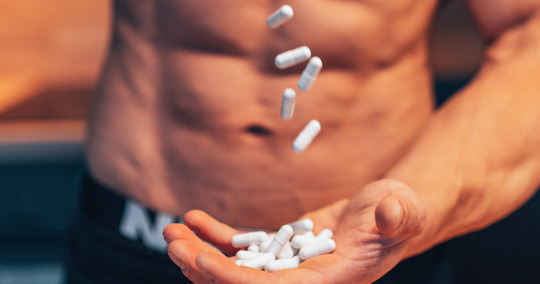
Making the Most of Your Daily Supplements
Set Specific Goals
Before starting a supplement routine, you should always have a goal in mind. Setting specific goals will help you plan your diet and supplement regimen to get the most out of it.
Start Slowly
Don't overdo it when starting a supplement regimen. If you're taking a supplement, start with a low amount and work your way up as your body adjusts.
Take Supplements Consistently
Supplements work best when taken consistently. Develop a schedule for taking your supplements and stick to them so that your body can benefit from them most.
Product Consistency
Be sure to stick with the same product if you find one that works for you. Different supplements or different brands may have different ingredients and dosages, so it's important to stay consistent to get full benefits from them.
Eat Healthily
Supplements may help you reach your fitness goals, but don't forget the importance of eating a balanced diet. To maximize the effectiveness of your supplements, aim for a diet rich in fresh fruits and vegetables and lean meats.
Keep Track
Track your progress by writing down any changes you notice after taking a supplement and make adjustments to your regimen as needed. This will help you monitor your results so that you can make sure that you're getting the best out of your exercise and supplementation routines.
Dosage
Always adhere to the recommended dosage indicated on the bottle of any supplement you take. Taking more than what is advised can be dangerous and lead to serious adverse effects.
Common Questions About Using Supplements and Herbal Remedies
Are herbal supplements safe?
Herbal supplements are generally considered safe and can be an effective way to boost testosterone levels. However, it's important to do your research and consult with a doctor before taking any supplement to avoid potential adverse effects that you may not be aware of.
When will I feel the effects of taking a supplement?
Generally, it can take a few weeks for supplements to start working. Consistently taking your supplements as directed and waiting for them to take effect might be frustrating, but you should start to notice an improvement in your testosterone levels over time.
How often should I take my supplements?
It depends on the type of supplement you're taking. Most supplements should be taken daily to see the most benefit. However, always read the directions on the label and follow them carefully.
Using supplements and herbal remedies can be a great way to boost testosterone hormone levels and help improve the benefits of many workouts. Be sure to do your research, consult with a doctor, and take your supplements as directed to get the most benefit from them.
Final Thoughts
For those planning to transition from female to male, supplements can be an invaluable tool for reaching their fitness goals and staying healthy throughout their journey.
A testosterone-boosting supplement composition can be an effective way to increase testosterone levels in those who are experiencing a testosterone deficiency. Supplements can also be used to boost the benefits of workouts for trans-masc individuals, allowing for a higher level of intensity and more significant results.
Nonetheless, it's crucial to keep in mind that supplements shouldn't be your only strategy for success. A healthy diet and regular exercise still play an important role in improving overall health and wellness.
Follow the advice given above and know all the risks associated with taking supplements for FTM workouts, so you can safely use these products to help you transition and reach your health goals.
10 notes
·
View notes
Text
Hey. Vent post and update. Not a happy post.
I'm not okay. I don't know when or if I will be okay. My health seems to be getting worse. I'm having a problem that, going from the symptoms, seems a lot like hypoglycemia, but my most recent blood work says I am not diabetic or prediabetic and everything looked normal. As I understand it, hypoglycemia without diabetes is a rare condition, but with my luck and my medical history I would not be surprised. I'm needing to eat more and more frequently and it seems like the specific types of food that were helping to keep the problems at bay just aren't as effective anymore, and now I can barely even tell what specific thing I need to eat. Do I need protein? Do I need greens? Do I need complex carbs? Do I need sugar? Who knows! Not me! I just have to guess and hope I guess right, or else my body is going to throw a fit about it and give me a matter of minutes to consume the Correct Thing before it just makes me go to sleep.
I dare not stray outside my list of safe foods, and by safe foods I mean foods that won't make my issues worse. Most candy, soda, white bread, anything with a lot of simple carbs or refined sugars is out of the question if I want to stay awake, upright, and functional, with few exceptions. Even honey, eating fruit, plant based protein, most vegetables besides dark leafy greens and potatoes and sweet potatoes, and things like white rice or bread that's been enriched with nutrients, at best does no good and at worst makes me feel like I'm going to keel over, which really sucks because my ultimate comfort food is soup beans and cornbread, and if I could eat that to get me through the day I would. The only things I can at least somewhat rely on are animal protein(preferably red meat but seafood, poultry, or eggs will do in a pinch, and whey protein is a last resort), dark leafy greens(kale, collard greens, that kind of thing), fruit juice(MUST be 100% juice) or fruit smoothies, and complex carbs(mostly whole grains, potatoes, and sweet potatoes, but oat milk works for a quick fix).
I'm trying to find solutions and work around this whole thing so I can go on with my life. I'm baking a lot of whole grain cornbread these days because it's easy to make and is the perfect thing when I need my carbs. I might need to invest in a bulk amount of beef jerky. I had been getting bulk amounts of cans of apple juice online but that's been harder to get in recent weeks so I've just been getting a 90-something-oz jug of grape juice from the store instead. My therapist suggested I start making green smoothies rather than just eating my greens cooked, so I might start getting my greenery in that way. Throwing the green stuff into the blender with some oat milk, chopped fruit, and a scoop of whey protein powder might make my life easier. I'll also discuss it with my chiropractor when I see him later this week, as he is a licensed nutritionist and can probably help me figure something out.
I'm so dang sick of being tired or hungry or both 24/7 and my body being like a fuel inefficient car that guzzles a whole tank of gas just to get you to the other side of town. If I go longer than an hour or so without eating or if I eat the wrong thing, I start getting hit by fatigue, dizziness, headache, shakiness, confusion, blurring vision, weakness, stuttering or slurred speech, and it'll get worse until I either eat something or fall asleep. If I fall asleep, I usually at least wake up with just enough strength to get something small and quick into my system and give myself the energy to think of what I need to do next.
I don't know what this is or why it's happening. I find myself wondering if it could be related to my fibromyalgia, or a long term side effect from when I caught covid a year or two ago, or if I've messed up my liver by taking Excedrin Migraine for the chronic headaches I've had since 2011, or if I'm alone in this. I haven't met anyone else dealing with this exact thing. Every time I go a-googling, I only ever find articles about diabetes and I want to scream BUT I DON'T HAVE THAT SO WHAT AM I SUPPOSED TO DO??? They say a problem well defined is half solved, but what can you do about it when you don't even have the resources to define the problem?
I have cried so much in the last week or so because I'm so frustrated with this. It's ruining everything in my life. I can't complete my personal responsibilities, I can't keep up with most of my friends except for the small handful of my very closest friends, I haven't been active on here in ages, haven't been able to get any crochet work done, barely been able to practice any self care beyond eating whatever I have the strength to put together, and I'm starting to lose sight of the point of existing if it has to be in a body that hurts all the time and can't hold onto fuel. I'm frustrated, I'm tired, I'm scared, I'm sad, I'm angry, I'm lost, and it's getting harder and harder to not lose hope. I'm really trying to hang in there, but it's so hard.
I don't know what to do anymore.
It's after 2am, so I think I'll stop there and try to get some sleep. Maybe tomorrow will be better. One can hope.
Stay determined. I'm trying to.
15 notes
·
View notes
Text

When using semaglutide injections for weight management, it's essential to follow a diet plan that complements the medication's effects, promotes healthy weight loss, and ensures adequate nutrition. Here’s a comprehensive diet plan to consider:
Key Principles of the Diet Plan
Balanced Macronutrients: Ensure a proper balance of proteins, carbohydrates, and fats to support overall health and energy levels.
High Protein: Include high-quality protein sources to help preserve muscle mass and promote satiety.
Fiber-Rich Foods: Incorporate plenty of fiber from fruits, vegetables, and whole grains to aid digestion and keep you full longer.
Healthy Fats: Focus on healthy fats from sources like avocados, nuts, seeds, and olive oil.
Low Glycemic Index: Choose low glycemic index (GI) foods to maintain stable blood sugar levels.
Hydration: Drink plenty of water throughout the day to stay hydrated and support metabolic processes.
Sample Diet Plan
Breakfast
Option 1: Greek yogurt with mixed berries and a sprinkle of chia seeds
Option 2: Scrambled eggs with spinach and a slice of whole-grain toast
Option 3: A smoothie made with protein powder, spinach, a banana, and almond milk
Mid-Morning Snack
Option 1: A small apple with a tablespoon of almond butter
Option 2: A handful of mixed nuts
Option 3: Cottage cheese with cucumber slices
Lunch
Option 1: Grilled chicken salad with mixed greens, cherry tomatoes, cucumber, and olive oil vinaigrette
Option 2: Quinoa bowl with black beans, avocado, corn, tomatoes, and a lime-cilantro dressing
Option 3: Turkey and avocado wrap using a whole-grain tortilla, with a side of baby carrots
Afternoon Snack
Option 1: Hummus with bell pepper slices
Option 2: A small serving of low-fat cheese with whole-grain crackers
Option 3: A protein shake with a scoop of whey protein, water, and ice
Dinner
Option 1: Baked salmon with quinoa and steamed broccoli
Option 2: Lean beef stir-fry with mixed vegetables and brown rice
Option 3: Lentil soup with a side of mixed green salad
Evening Snack (if needed)
Option 1: A small bowl of berries
Option 2: A few slices of turkey breast
Option 3: A piece of dark chocolate (70% cocoa or higher)
Additional Tips
Portion Control: Pay attention to portion sizes to avoid overeating. Semaglutide helps with satiety, but it's still important to be mindful of portions.
Mindful Eating: Practice mindful eating by paying attention to hunger and fullness cues, eating slowly, and enjoying each bite.
Regular Meals: Try to eat at regular intervals to maintain energy levels and prevent overeating at later meals.
Limit Processed Foods: Minimize intake of processed foods, sugary snacks, and high-calorie beverages.
Consult a Dietitian: Consider working with a registered dietitian to tailor the diet plan to your specific needs and preferences.
Monitoring and Adjustments
Track Progress: Keep a food diary or use a mobile app to track your food intake and progress.
Regular Check-ups: Have regular follow-ups with your healthcare provider to monitor your progress, adjust the medication dosage if needed, and ensure that the diet plan is working effectively for you.
Combining semaglutide injections with a well-balanced diet plan can enhance weight loss outcomes and promote overall health. Remember to make gradual and sustainable changes to your eating habits for long-term success.
#motivation#nutrition#self improvement#positive mental attitude#self care#tampa#weight loss#getting married#weight loss tips#lose weight fast
1 note
·
View note
Text
Dr. Megha Modi: Trusted Skin Specialist in Vaishali
INTRODUCTION
Meet Dr. Megha Modi, renowned Skin Specialist in Vaishali. Trusted for personalized acne treatments and skincare solutions.

Introduction
Acne causes physical and emotional damage to the body and reduces confidence. Most people do not know the causes of acne. They regularly eat those food items without knowing that those may worsen the acne. If you are prone to acne or currently facing acne outbreak, consult a skin specialist in Vaishali to find the best food for your skin health.
What Are The Various Factors That Triggers Acne?
Acne may be triggered due to the following reasons:
Stress: Stress triggers acne breakdown and worsens the already present acne. It is believed that stress induces the production of the corticotrophin-releasing hormone. This hormone binds to the sebaceous gland receptors and increases oil production. Increased oil production results in acne.

Diet: Certain food increases the incidence of acne and worsens acne. It is advised that people who are prone to acne or are struggling with acne should not incorporate such foods in their diet.
Medications: Acne is also the side effect of some medications. These medications include corticosteroids, lithium, contraceptive pills, and testosterone.
Hormonal imbalance: Hormonal imbalances also results in acne. Androgens are responsible for initiating puberty in boys and girls. These hormones initiate various changes including enlargement of sebaceous glands. Most people have acne during the start of puberty.
Family history: Family history of acne also plays an important role in developing acne. If either or both the parents had acne, the risk of acne in the next generation increases.
Which Food Triggers Acne?
Following are some of the food products that are believed to trigger or worsen acne:
Whey Protein Powder: Whey protein triggers acne. When whey combined with the receptor in the gastrointestinal tract, it results in an acne outbreak. You may choose other alternatives such as pea protein powder.
Omega-6 fatty acid-rich foods: Increased level of omega-6 fatty acid-rich food imbalance the ratio of omega-3 and omega-6 fatty acid. This results in inflammation. Increased inflammation worsens acne.
Chocolate: Several studies have been conducted to show that dark chocolates cause acne outbreaks. Increased chocolate intake stimulates the immune system against acne-causing bacteria. This results in inflammation.
Dried Fruits: If you are prone to acne, you should avoid dried fruit and opt for fresh fruit. There is an increased level of the glycaemic index in dried fruit that increases the sugar level of the body. This initiates a cascade of chemical reactions including hormonal production which increases oil production. Increased oil production causes acne.
Refined grains: Grains rich in refined carbohydrates should be avoided by people who are prone to acne. Bread, cereals or pasta made of white flour and white rice are rich in refined carbohydrates.
Eating fast food regularly may lead to acne. It is believed that fast food may alter the hormonal levels that result in inflammation.
Dairy Products: Skim milk may increase the risk of acne and enhances severity.
Shellfish: Lobster and shrimps may lead to acne. The reason for this is believed to be their high concentration of iodine. Although iodine is beneficial for the body people who are sensitive or take a higher intake, may lead to side effects. Instead, opt for fish rich in omega-3 fatty acids.
Bottled Juice: Bootle juice is high in sugar content. Increased sugar levels may cause increased oil production and an acne outbreak.
Alcohol: Alcohol is not good for the body and may trigger acne. This is because alcohol is a diuretic that has the potential to dehydrate the skin. Skin dehydration may lead to clogging of pores. Pore clogging may cause acne.
0 notes
Text
The Role of Supplements in Fitness
Supplements have become a ubiquitous part of the fitness industry, with countless products claiming to enhance performance, support muscle growth, and improve overall health. While some supplements can play a beneficial role in supporting fitness goals, others may be unnecessary or even potentially harmful if used improperly. In this article, we'll explore the role of supplements in fitness, including their potential benefits, risks, and considerations for safe and effective use.
1. Understanding Supplements
Supplements are products intended to supplement the diet and provide essential nutrients, vitamins, minerals, amino acids, herbs, or other substances that may be lacking in the diet or beneficial for health and performance. They come in various forms, including pills, capsules, powders, liquids, and bars, and are widely available over-the-counter at pharmacies, health food stores, and online retailers.
2. Potential Benefits of Supplements in Fitness
While a balanced diet rich in whole foods should always be the foundation of a healthy lifestyle, supplements can play a supportive role in fitness by providing additional nutrients or enhancing specific aspects of performance or recovery. Some potential benefits of supplements in fitness include:
Meeting Nutrient Needs: Certain supplements can help fill nutrient gaps in the diet, particularly for individuals with specific dietary restrictions, preferences, or deficiencies. For example, vegans or vegetarians may benefit from taking vitamin B12, iron, or omega-3 supplements to ensure adequate intake of these nutrients.
Enhancing Performance: Some supplements, such as caffeine, creatine, beta-alanine, and nitric oxide boosters, have been shown to enhance exercise performance by increasing energy, strength, power, endurance, or blood flow. These supplements may be particularly beneficial for athletes or individuals engaging in high-intensity or endurance activities.
Supporting Muscle Growth and Recovery: Protein supplements, such as whey protein, casein protein, and plant-based protein powders, are commonly used to support muscle growth, repair, and recovery after exercise. Branched-chain amino acids (BCAAs) and essential amino acid supplements may also help reduce muscle soreness and promote muscle protein synthesis.
Aiding Weight Management: Certain supplements, such as caffeine, green tea extract, conjugated linoleic acid (CLA), and thermogenic fat burners, are marketed for their potential to boost metabolism, increase fat oxidation, and support weight loss or weight management goals. However, it's essential to use these supplements in conjunction with a balanced diet and regular exercise for optimal results.

3. Risks and Considerations
While some supplements can offer benefits for fitness and health, others may carry risks or have limited evidence to support their efficacy. It's essential to approach supplements with caution and consider the following factors:
Quality and Purity: Not all supplements are created equal, and quality can vary widely among brands and products. Look for supplements that have been third-party tested for purity, potency, and safety by reputable organizations such as NSF International, Informed-Sport, or ConsumerLab.com.
Potential Side Effects: Some supplements may cause adverse reactions or side effects, particularly if taken in high doses or combined with other medications or supplements. It's essential to read labels carefully, follow recommended dosages, and consult with a healthcare professional before starting any new supplement regimen, especially if you have underlying health conditions or concerns.To get more information click QocHealth.com.
Legal and Regulatory Considerations: The supplement industry is loosely regulated, and not all products undergo rigorous testing or scrutiny before being marketed to consumers. Be cautious of supplements that make exaggerated claims or promises that seem too good to be true. Look for products that are backed by scientific research and have a track record of safety and efficacy.
4. Supplementing Wisely
When considering supplements for fitness, it's essential to adopt a cautious and informed approach:
Assess Your Needs: Evaluate your diet, lifestyle, and fitness goals to determine if there are any specific nutrients or areas where supplementation may be beneficial. Focus on filling nutrient gaps and addressing individual needs rather than relying solely on supplements for overall health and fitness.
Choose Wisely: Select supplements from reputable brands with a track record of quality, safety, and transparency. Look for products that have undergone third-party testing and certification to ensure purity and potency.
Consult with a Professional: Before starting any new supplement regimen, consult with a qualified healthcare professional, such as a registered dietitian or sports nutritionist, to assess your individual needs, discuss potential risks and benefits, and develop a personalized plan that aligns with your goals and preferences.
Monitor Effects: Pay attention to how your body responds to supplements and adjust your regimen as needed based on changes in performance, energy levels, mood, and overall well-being. If you experience any adverse reactions or concerns, discontinue use and seek guidance from a healthcare professional.
5. Conclusion
Supplements can play a supportive role in fitness by providing essential nutrients, enhancing performance, and supporting overall health and well-being. However, it's essential to approach supplements with caution, skepticism, and informed decision-making. Focus on meeting nutrient needs through a balanced diet, choose supplements wisely from reputable brands, and consult with a healthcare professional before starting any new supplement regimen. By supplementing wisely and responsibly, you can maximize the potential benefits of supplements while minimizing risks and ensuring safe and effective support for your fitness goals.
0 notes
Text
THE SCIENCE BEHIND WHEY PROTEIN: WHEN TO TAKE IT FOR MAXIMUM EFFECT
Introduction
When it comes to working out and building muscle, protein is essential. Protein provides the building blocks that your body needs to repair and build muscle tissue. There are many different types of protein, but whey protein is one of the most popular and most effective.
Whey protein is a complete protein, meaning it contains all of the essential amino acids your body needs. It is also a fast-acting protein, which means it is absorbed quickly by your body. This makes it an ideal choice for post-workout recovery.
But what is the science behind whey protein? And when is the best time to take it for maximum effect? Keep reading to find out!
What is whey protein?
Whey protein is one of the main proteins found in cow’s milk. It’s a complete protein that is made up of all nine essential amino acids. It’s also a fast-digesting protein, which means it’s quickly broken down and absorbed by your body. Whey protein can be taken in the form of a shake or powder, or simply by taking a few spoonfuls of regular cow’s milk. Whey protein is also high in branched chain amino acids (BCAAs), which have been shown to have various muscle-building benefits. BCAAs help build and repair muscle tissue, reduce muscle soreness, and increase performance during workouts.
When is the best time to take whey protein?
There is some debate over when the best time to take whey protein is, but most experts agree that post-workout is the ideal time. This is because your body is primed and ready to absorb protein at this time. Taking whey protein after a workout has shown to be up to three times more effective in terms of increasing muscle mass and strength than taking it at other times throughout the day. The reason for this is because right after a workout, your body’s metabolism is revved up and it is actively trying to repair and rebuild muscle tissue. Taking whey protein at this time will help your body rebuild more efficiently and quickly. It’s also important to note that taking whey protein before a workout is important too, as it can help provide energy and help promote muscle growth before your workout starts.
Why does when you take whey protein matter?
Timing your whey protein intake is essential for several reasons. As mentioned before, taking whey protein immediately post-workout helps your body heal and rebuild more efficiently. It also helps you make the most of your workouts by helping your body to better utilize protein and promote muscle growth. Another reason why when you take your whey protein is important is because it can actually help keep your hunger levels in check. Since whey protein is digested quickly and absorbed quickly, it can help fill you up and keep you feeling full for longer. This can be especially helpful if you’re looking to lose weight by cutting back on your calorie intake.
How much whey protein should you take?
The amount of whey protein you should take will depend on a variety of factors, such as your body weight, diet, and goals. Generally, most people should consume between 1-2 scoops of whey protein after a workout. However, if you’re looking to build muscle, you may benefit from taking up to 3 scoops of whey protein after your workout. It’s important to keep in mind that too much protein can be hard on your kidneys and can negatively affect your digestion. So, it’s always best to start off with a smaller amount of whey protein and gradually increase the amount you take as needed.
Are there any side effects to taking whey protein?
The good news is that, when taken in moderation, whey protein is generally safe and has few side effects. Common side effects, such as digestion and bloating, can occur when taking too much whey protein or when taking it on an empty stomach. Other side effects, such as headaches or nausea, have been reported when taking whey protein, but these are usually mild and may decrease over time as your body gets used to it.
To wrap things up
Whey protein is an excellent source of complete protein that is quickly digested and absorbed by your body. Taking it immediately after a workout has been shown to be the most effective way to increase muscle mass and strength. But, it’s important to take it in moderation as too much can have negative consequences. If you’re looking to add whey protein to your diet, make sure to talk to your healthcare provider to determine how much is right for you.
#whey protein#whey#whey protein powder#whey protein isolate#best whey protein#whey protein price#whey powder#whey protein concentrate#what is whey protein#what is whey#what is whey protein isolate#what is whey protein made of#what is the best whey protein#what are the benefits of whey protein#best time to take whey protein#How much whey protein should you take#side effects to taking whey protein#side effects of whey protein
0 notes
Text
What are The Benefits and Side Effects of Whey Protein?
Whey protein has been around for quite some time and was originally developed by dairy farmers in order to recover the remaining milk solids after milking. Since then, many athletes have begun using it to help build muscle mass and recovery. Today, it’s commonly used in bodybuilding supplements as well as in protein bars. However, not much research exists about its benefits and side effects.
What Is Whey Protein?
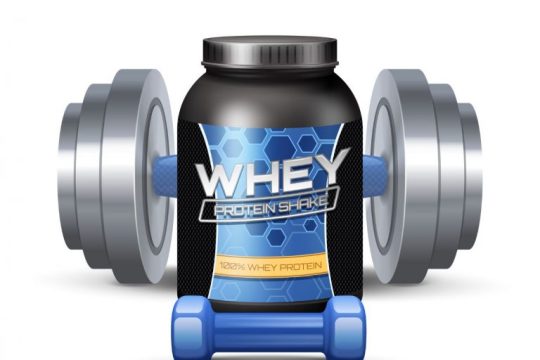
Whey protein is derived from dairy products and is created when milk separates from the cream after processing. It comes from the liquid portion of milk and contains approximately 50% lactose.
When we eat dairy products, we get a small amount of whey protein along with our regular casein protein, which accounts for about 40-50%. When we drink milk, we lose some of the whey protein fraction. If the milk is left over, then more whey is produced because the bacteria in the milk break down the casein protein and release the whey protein.
Benefits of Whey Protein
There seems to be no end to the benefits of drinking whey protein. In fact, one study suggested that consuming it could improve bone health by increasing calcium levels and reducing the risk of osteoporosis. Another study showed that it could increase muscular strength and endurance in men who were older than 60 years old.
Side Effects of Whey Protein
There are a few potential side effects of whey protein, but these are generally mild and can be easily avoided. The most common side effect is gastrointestinal discomfort, which can be caused by excess protein in the diet. This can be avoided by drinking plenty of water and avoiding high-fat foods.
Other potential side effects include headaches, fatigue, and muscle cramps. These can be avoided by drinking plenty of fluids and taking breaks during exercise. Overall, whey protein is safe for most people, but it is important to be aware of the potential side effects.
Some studies did show that consuming high doses of whey protein may cause stomach upset, diarrhea, and even headaches. However, these symptoms should only last for less than 24 hours. If they do persist, it might mean you need to lower the amount of protein you consume.
However, if you want to take advantage of all the benefits of whey protein, make sure to get quality products. You don't want to accidentally buy something cheap since there's really no way to tell what ingredients might actually be included.
Summary
You can add additional protein to your usual diet in a safe and effective way by using whey protein powders and supplements. It is an excellent protein source that is easily assimilated by our body.
Weight lifters, athletes, those who don't get enough natural protein in their diet, and others who might use more muscle mass, strength, and reduced body fat would benefit most from whey protein.
The best nutrient for promoting muscle growth and fat loss is protein. It is one of the greatest protein sources available. So it stands to reason that anyone trying to increase their intake of the nutrient would be wise to pick up some whey protein powder.
0 notes
Text
Unleash Your Potential: The Power of Sports Supplements in UAE
In the vibrant landscape of the UAE, where the pursuit of fitness and athleticism is woven into the fabric of daily life, athletes and fitness enthusiasts alike are constantly seeking ways to optimize their performance and achieve their goals. Enter sports supplements — a diverse array of products designed to fuel workouts, support recovery, and enhance overall athletic performance. Diettox offers Sports Supplements in Dubai But with countless options available, how do you choose the best sports supplements in the UAE? Fear not, for we’ve curated a selection of top contenders to help you elevate your performance and unlock your full potential.
1. Whey Protein Powder:
Whey protein powder stands as a cornerstone in the world of sports supplements, renowned for its ability to support muscle growth, repair, and recovery. In the UAE, you’ll find a wide array of whey protein powders, ranging from isolate to concentrate to hydrolysate. Look for products that boast high protein content, minimal additives, and excellent flavor profiles to fuel your workouts and optimize muscle synthesis.
2. Creatine Monohydrate:
Diettox also offers Sports Supplements in Abu Dhabi Creatine monohydrate is another powerhouse supplement favored by athletes seeking to enhance strength, power, and performance. Found naturally in the body, creatine plays a crucial role in energy production during high-intensity exercise. Opt for pure, micronized creatine monohydrate supplements in the UAE to maximize absorption and effectiveness, and consider cycling on and off to maintain optimal levels over time.
3. Branched-Chain Amino Acids (BCAAs):
BCAAs — leucine, isoleucine, and valine — are essential amino acids that play a vital role in muscle protein synthesis and recovery. BCAA supplements are particularly beneficial for athletes engaging in endurance activities or training in a fasted state. Look for BCAA supplements in the UAE that offer a balanced ratio of amino acids, along with added electrolytes to support hydration and performance during intense workouts.
4. Beta-Alanine:
Beta-alanine is a non-essential amino acid known for its ability to enhance muscular endurance and delay fatigue during high-intensity exercise. Supplementing with beta-alanine can increase muscle carnosine levels, buffering the buildup of lactic acid and allowing for greater work output. Seek out high-quality beta-alanine supplements in the UAE to support your training regimen and push through plateaus with renewed strength and stamina.
5. Pre-Workout Formulas:
Pre-workout supplements are designed to boost energy levels, enhance focus, and optimize performance before hitting the gym or the field. Look for pre-workout formulas in the UAE that contain a blend of caffeine, beta-alanine, creatine, and other performance-enhancing ingredients to ignite your workouts and propel you to new heights. Be mindful of dosage and timing to avoid jitters or energy crashes, and always follow the manufacturer’s recommendations.
Conclusion: Unleash Your Potential with the Best Sports Supplements in the UAE
In the dynamic and competitive landscape of the UAE, achieving peak performance requires dedication, discipline, and the right tools at your disposal. With the best sports supplements by your side, you can fuel your workouts, support your recovery, and unlock your full athletic potential. Whether you’re seeking muscle growth, endurance, or strength gains, the UAE offers a diverse array of high-quality supplements to suit your needs. Embrace the journey, trust in your abilities, and let the best sports supplements in the UAE propel you towards greatness.
0 notes
Text
Is It Okay to Drink Protein with Milk?
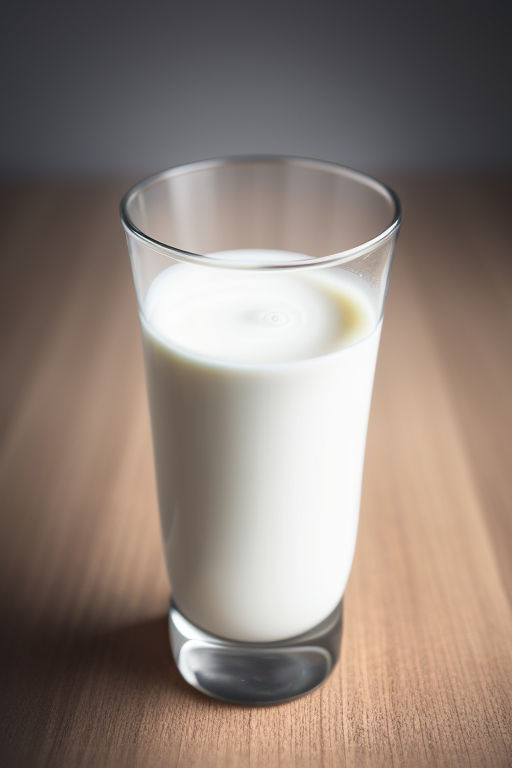
In the ever-evolving landscape of fitness and nutrition, the debate over whether it's acceptable to mix protein with milk has sparked considerable interest and controversy. Protein shakes have surged in popularity, becoming a staple in the diets of fitness enthusiasts and athletes alike. However, opinions diverge when it comes to the preferred liquid base for these shakes. Let's delve into this contentious topic and explore the arguments on both sides of the equation.
Protein shakes have emerged as a convenient and efficient way to meet daily protein requirements, particularly for individuals with active lifestyles or those seeking to enhance muscle growth and recovery. These powdered supplements offer a concentrated source of protein, typically derived from various sources such as whey, casein, or plants. However, the choice of liquid used to mix these powders—most notably milk—has ignited a spirited debate within the fitness community.
Highlighting the Popularity of Protein Shakes
The ubiquity of protein shakes in modern fitness culture cannot be overstated. From gym-goers to professional athletes, these beverages have become synonymous with post-workout recovery and muscle building. Their convenience and portability make them an attractive option for individuals looking to optimize their nutrition without the hassle of preparing elaborate meals.
Addressing the Controversy
Despite the widespread acceptance of protein shakes, the controversy surrounding the inclusion of milk as a mixer persists. While some swear by the creamy texture and enhanced flavor that milk imparts, others argue that it may compromise the effectiveness of the protein shake or lead to undesirable side effects. To unravel this debate, it's essential to first understand the role of protein shakes in the context of fitness and nutrition.
Understanding Protein Shakes
Defining Protein Shakes
Protein shakes are dietary supplements designed to provide a concentrated source of protein in an easily consumable form. Typically available in powdered form, these supplements can be mixed with various liquids to create a convenient and portable source of nutrition. They offer a quick and efficient way to replenish protein stores following intense physical activity or as a supplement to a balanced diet.
Exploring Their Purpose
The primary purpose of protein shakes is to support muscle repair, growth, and recovery. Protein plays a crucial role in these processes, serving as the building blocks for muscle tissue and aiding in the repair of micro-tears that occur during exercise. By providing a readily available source of protein, protein shakes help to facilitate these physiological processes and promote optimal recovery and adaptation to training stimuli.
Highlighting Their Popularity
Protein shakes have become a mainstay in the fitness community due to their convenience and effectiveness. Whether consumed immediately post-workout or as a between-meal snack, these beverages offer a convenient way to boost protein intake and support muscle growth and recovery. Their popularity extends beyond the realm of bodybuilding and athletic performance, with many individuals incorporating protein shakes into their daily routines as a convenient dietary supplement.
The Role of Protein in the Body
Understanding Protein's Importance
Protein plays a vital role in virtually every aspect of bodily function, serving as the building blocks for tissues such as muscles, skin, and hair. Beyond its structural role, protein is involved in various metabolic processes, including enzyme catalysis, hormone production, and immune function. Adequate protein intake is essential for overall health and well-being, with deficiencies linked to impaired growth, compromised immune function, and impaired wound healing.
Supporting Muscle Repair and Growth
One of the primary functions of protein is to support muscle repair and growth. During exercise, muscle fibers undergo microscopic damage, resulting in the need for repair and remodeling. Protein provides the necessary amino acids to facilitate this process, promoting muscle protein synthesis and hypertrophy. Consuming protein in the post-exercise period helps to replenish protein stores and optimize recovery, enabling individuals to adapt to training stimuli and progress towards their fitness goals.
Exploring Other Functions
In addition to its role in muscle repair and growth, protein serves a myriad of other functions within the body. These include the synthesis of enzymes and hormones, transport of molecules within cells, and maintenance of fluid balance and pH. Protein also plays a crucial role in immune function, serving as antibodies that help to identify and neutralize foreign invaders such as bacteria and viruses. Thus, adequate protein intake is essential for supporting overall health and vitality.
Types of Protein Powders
Whey Protein
Whey protein is one of the most popular and widely available forms of protein powder. Derived from milk during the cheese-making process, whey protein is rich in essential amino acids, making it an ideal choice for promoting muscle growth and recovery. Whey protein is rapidly digested and absorbed by the body, making it an excellent option for post-workout supplementation or as a quick and convenient source of protein throughout the day.
Casein Protein
Casein protein is another milk-derived protein powder that differs from whey in its digestion kinetics. Unlike whey, which is rapidly absorbed, casein forms a gel-like substance in the stomach, resulting in slower and more sustained release of amino acids into the bloodstream. This slow-digesting nature makes casein an ideal choice for prolonged periods of fasting or as a nighttime protein source to support muscle repair and recovery during sleep.
Plant-Based Protein Options
For individuals following vegetarian or vegan diets, plant-based protein powders offer a viable alternative to animal-derived options. These powders are typically made from sources such as pea, rice, hemp, or soy protein and provide a complete amino acid profile comparable to animal proteins. Plant-based protein powders are also rich in fiber, vitamins, and minerals, making them a nutritious and sustainable choice for individuals with dietary restrictions or ethical considerations.
Discussing the Differences
Each type of protein powder offers unique benefits and considerations based on individual preferences and dietary needs. Whey protein is prized for its rapid digestion and high amino acid content, making it ideal for post-workout supplementation. Casein protein, on the other hand, provides a slow and sustained release of amino acids, making it suitable for prolonged periods of fasting or overnight recovery. Plant-based protein powders offer a cruelty-free alternative for individuals with dietary restrictions or ethical concerns, providing a complete source of amino acids from non-animal sources.
Benefits of Drinking Protein Shakes
Convenience
One of the primary benefits of protein shakes is their convenience and portability. Unlike whole food sources of protein, which require cooking and preparation, protein shakes can be quickly mixed and consumed on the go. This makes them an ideal option for individuals with busy lifestyles or limited time for meal preparation.
Aid in Muscle Recovery
Protein shakes are an effective tool for supporting muscle recovery and repair following intense physical activity. By providing a concentrated source of amino acids, protein shakes help to replenish protein stores and promote muscle protein synthesis. Consuming protein in the post-exercise period helps to reduce muscle soreness and accelerate recovery, enabling individuals to train more frequently and with greater intensity.
Weight Management Support
Protein shakes can also be beneficial for individuals looking to manage their weight or promote fat loss. Protein has been shown to increase satiety and reduce hunger, leading to decreased calorie intake and improved weight management. By incorporating protein shakes into a balanced diet, individuals can support their weight loss goals while preserving lean muscle mass and metabolic function.
Exploring Other Benefits
In addition to their role in muscle recovery and weight management, protein shakes offer a range of other potential benefits. These include improved immune function, enhanced nutrient absorption, and support for overall health and vitality. By incorporating protein shakes into their daily routine, individuals can optimize their nutrition and support their fitness goals with minimal time and effort.
Milk as a Source of Protein
Nutritional Content of Milk
Milk is a nutrient-rich beverage that provides a wide array of essential nutrients, including protein, calcium, vitamins, and minerals. It serves as a complete source of nutrition for young mammals, supplying the necessary building blocks for growth and development. In addition to its protein content, milk is rich in calcium, which is essential for bone health, muscle function, and nerve transmission.
Discussing Protein Content
Milk is prized for its high-quality protein content, which contains all nine essential amino acids required for human health. Whey and casein, the two primary proteins found in milk, are renowned for their muscle-building properties and rapid digestion kinetics. Consuming milk as a source of protein can help to promote muscle growth and recovery, making it an attractive option for individuals seeking to optimize their nutrition and support their fitness goals.
Exploring Other Nutrients
In addition to protein, milk contains a variety of other essential nutrients that contribute to overall health and well-being. These include vitamins such as vitamin D, vitamin A, and vitamin B12, as well as minerals such as calcium, phosphorus, and potassium. Milk also contains bioactive compounds such as lactoferrin and immunoglobulins, which have been shown to support immune function and enhance nutrient absorption.
Mixing Protein with Milk: Pros and Cons
Pros of Mixing Protein with Milk
Enhanced Taste
Mixing protein powder with milk can enhance the taste and texture of the resulting shake, making it more palatable and enjoyable to consume. The creamy consistency of milk complements the flavor of the protein powder, creating a delicious and satisfying beverage that can be customized to suit individual preferences.
Additional Nutrients
In addition to protein, milk provides a range of essential nutrients that can enhance the nutritional profile of the protein shake. These include calcium, vitamins, and minerals, which contribute to overall health and well-being. By mixing protein with milk, individuals can create a well-rounded beverage that supports their fitness goals and provides a comprehensive source of nutrition.
Cons of Mixing Protein with Milk
Increased Calorie Content
One potential downside of mixing protein with milk is the increased calorie content of the resulting shake. While protein is essential for muscle growth and recovery, excess calorie intake can lead to weight gain or hinder weight loss efforts. Individuals seeking to manage their calorie intake should be mindful of the additional calories contributed by the milk when mixing protein shakes.
Potential Digestive Issues
For some individuals, mixing protein with milk may lead to digestive discomfort or intolerance. Lactose intolerance, a condition characterized by the inability to digest lactose, the sugar found in milk, can cause symptoms such as bloating, gas, and diarrhea. Additionally, some individuals may experience sensitivity or allergy to milk proteins, such as whey or casein, which can manifest as gastrointestinal distress or allergic reactions.
Impact on Digestion and Absorption
Discussing Digestive Effects
Mixing protein with milk can impact digestion and absorption kinetics, potentially affecting the rate at which nutrients are released into the bloodstream. Whey protein, for example, is rapidly digested and absorbed, leading to a quick spike in blood amino acid levels. When mixed with milk, however, the presence of lactose and casein may slow down digestion, resulting in a more gradual and sustained release of amino acids.
Considering Absorption Rate
The absorption rate of protein when mixed with milk may vary depending on the type of protein powder used and individual digestive factors. Whey protein is known for its rapid absorption, making it an ideal choice for post-workout supplementation when quick nutrient delivery is desired. Casein protein, on the other hand, forms a gel-like substance in the stomach, resulting in slower and more sustained release of amino acids into the bloodstream.
Exploring Digestive Discomforts
Some individuals may experience digestive discomfort when mixing protein with milk, particularly if they have lactose intolerance or sensitivity to milk proteins. Symptoms such as bloating, gas, and diarrhea may occur in response to lactose or milk protein ingestion, leading to discomfort and disruption of normal digestive function. Individuals with these concerns may opt for alternative protein sources or milk substitutes to avoid digestive issues.
Potential Allergies and Sensitivities
Discussing Lactose Intolerance
Lactose intolerance is a common condition characterized by the inability to digest lactose, the sugar found in milk. It occurs due to deficiency of the enzyme lactase, which is responsible for breaking down lactose in the small intestine. Individuals with lactose intolerance may experience symptoms such as bloating, gas, abdominal pain, and diarrhea following the consumption of dairy products such as milk.
Highlighting Milk Protein Allergies
In addition to lactose intolerance, some individuals may experience allergies or sensitivities to milk proteins such as whey or casein. Milk protein allergy is more common in infants and young children but can persist into adulthood in some cases. Symptoms of milk protein allergy may include skin rashes, hives, itching, swelling of the lips or tongue, respiratory symptoms, and gastrointestinal distress.
Mentioning Alternatives
For individuals with lactose intolerance or milk protein allergies, there are several alternatives to consider when mixing protein shakes. Plant-based milk alternatives such as almond milk, soy milk, or coconut milk can serve as suitable substitutes for dairy milk. These alternatives offer a similar creamy texture and can be used interchangeably in protein shake recipes to accommodate individual dietary preferences and restrictions.
Fitness Goals and Dietary Preferences
Considering Different Goals
When choosing a protein source for their shakes, individuals should consider their specific fitness goals and dietary preferences. For those seeking to build muscle and support recovery, a high-quality protein source such as whey or casein may be preferred. Alternatively, individuals following plant-based diets or with lactose intolerance may opt for plant-based protein powders or milk alternatives to meet their nutritional needs.
Discussing Dietary Preferences
Dietary preferences such as veganism or lactose intolerance can influence the choice of protein source for individuals. While whey and casein are derived from dairy and may not be suitable for those with lactose intolerance or milk protein allergies, plant-based protein powders offer a cruelty-free alternative that aligns with vegan principles. By considering their dietary preferences, individuals can select protein sources that support their values and beliefs while meeting their nutritional requirements.
Choosing the Right Protein Source
The key to choosing the right protein source lies in understanding individual needs and preferences. Whether seeking to build muscle, manage weight, or accommodate dietary restrictions, there are protein options available to suit every lifestyle. By selecting a protein source that aligns with their goals and preferences, individuals can optimize their nutrition and support their journey towards improved health and fitness.
Popular Myths and Misconceptions
Addressing Common Misconceptions
In the realm of nutrition and fitness, myths and misconceptions abound, often leading to confusion and misinformation. When it comes to mixing protein with milk, several myths persist, perpetuated by anecdotal evidence or outdated beliefs. It's essential to separate fact from fiction and debunk these misconceptions to ensure informed decision-making and optimal nutrition.
Debunking Myths
One common myth surrounding the mixing of protein with milk is that it impairs protein absorption or effectiveness. While some believe that the presence of calcium in milk interferes with protein digestion, research suggests that this is not the case. In fact, milk has been shown to enhance protein digestion and absorption, making it a suitable mixer for protein shakes. By debunking myths such as these, individuals can make educated choices about their nutrition and fitness practices.
Expert Opinions and Research Findings
Sharing Expert Insights
Nutrition experts and researchers play a crucial role in informing best practices and guiding evidence-based recommendations. By sharing insights from experts in the field, individuals can gain a deeper understanding of the science behind protein consumption and its implications for health and performance. Whether discussing optimal protein intake, digestion kinetics, or the role of milk in protein shakes, expert opinions provide valuable context and perspective.
Discussing Research Findings
In addition to expert opinions, research findings offer valuable insights into the effects of mixing protein with milk. Numerous studies have explored the impact of various protein sources and mixers on muscle protein synthesis, digestion kinetics, and exercise performance. By discussing relevant research findings, individuals can gain a better understanding of the factors influencing protein absorption and effectiveness, enabling them to make informed choices about their nutrition and supplementation strategies.
Presenting Both Sides
It's important to present both sides of the debate when discussing the mixing of protein with milk. While some individuals may prefer milk as a mixer for its taste and nutritional benefits, others may opt for alternative liquids based on dietary preferences or digestive concerns. By presenting a balanced perspective that considers the diverse needs and preferences of individuals, we can empower readers to make informed decisions that align with their goals and values.
Personal Experiences and Testimonials
Including Anecdotes
Personal anecdotes and testimonials offer valuable insights into the real-world experiences of individuals who have tried mixing protein with milk. By sharing their stories and perspectives, individuals can provide context and context for the benefits and drawbacks of this practice. Whether discussing taste preferences, digestive effects, or performance outcomes, personal experiences offer a relatable and authentic perspective on the topic.
Highlighting Diverse Perspectives
It's important to highlight diverse perspectives and experiences when discussing the mixing of protein with milk. While some individuals may have had positive experiences with this practice, others may have encountered challenges or found alternative solutions that better suit their needs. By acknowledging the range of experiences and preferences within the fitness community, we can foster understanding and empathy while empowering individuals to make choices that align with their unique circumstances.
Alternatives to Mixing Protein with Milk
Exploring Liquid Options
For individuals looking to explore alternative options for mixing protein powder, there are several liquid alternatives to consider. Water is a simple and convenient choice that provides a neutral base for protein shakes, allowing the flavor of the protein powder to shine through. Other options include coconut water, fruit juice, or brewed tea, which can add flavor and variety to protein shakes while providing additional hydration and nutrients.
Getting Creative with Recipes
In addition to exploring alternative liquids, individuals can get creative with protein shake recipes by incorporating a variety of ingredients and flavorings. Adding fresh or frozen fruit, nut butter, spices, or extracts can enhance the taste and nutritional profile of protein shakes, making them more enjoyable and satisfying to consume. By experimenting with different combinations and ingredients, individuals can customize their protein shakes to suit their taste preferences and dietary needs.
Conclusion
In conclusion, the debate over whether it's okay to drink protein with milk is multifaceted and complex, with valid arguments on both sides of the equation. While mixing protein with milk can enhance taste and provide additional nutrients, it may also increase calorie content and lead to digestive issues for some individuals. Ultimately, the decision to mix protein with milk depends on individual preferences, dietary needs, and fitness goals.
By considering factors such as taste, nutritional content, and digestive tolerance, individuals can make informed choices about their protein supplementation practices. Whether opting for milk as a mixer or exploring alternative liquids, the key is to prioritize consistency, convenience, and personal preference. With a diverse array of protein sources and mixers available, there's no one-size-fits-all approach to nutrition and supplementation. Instead, it's essential to experiment, listen to your body, and find what works best for you.
0 notes